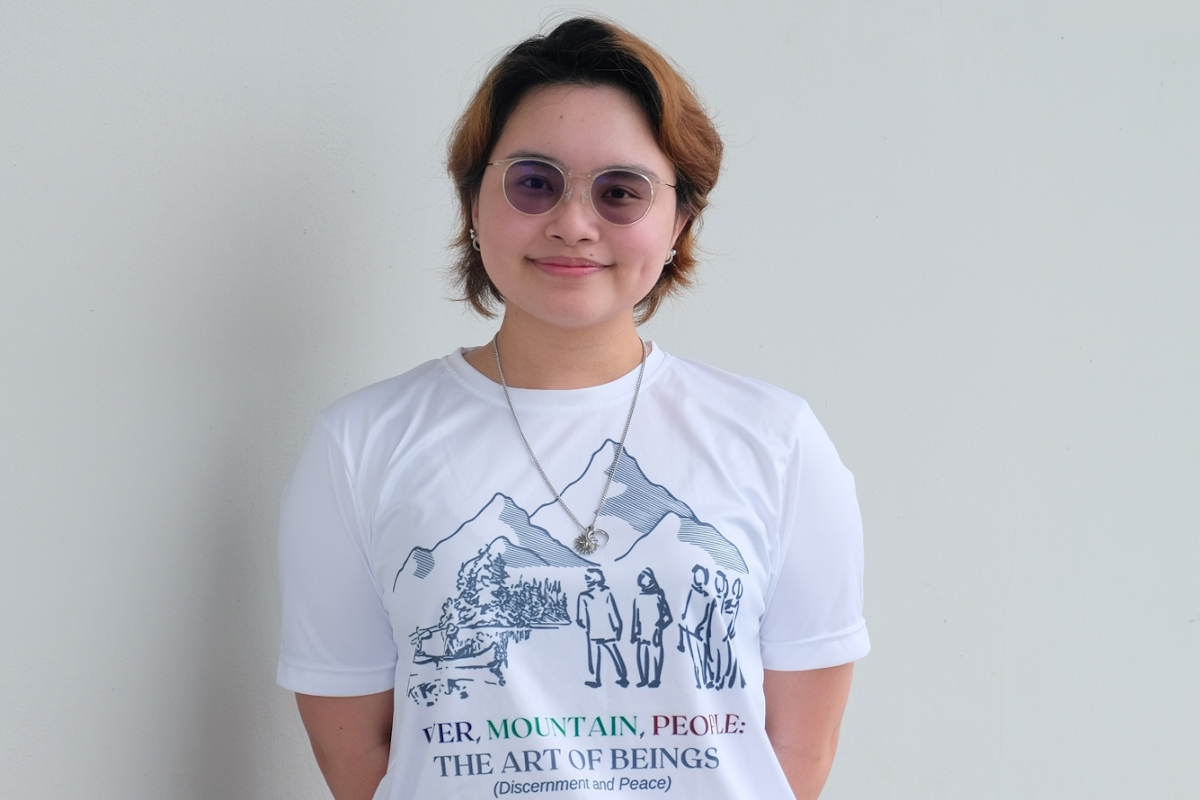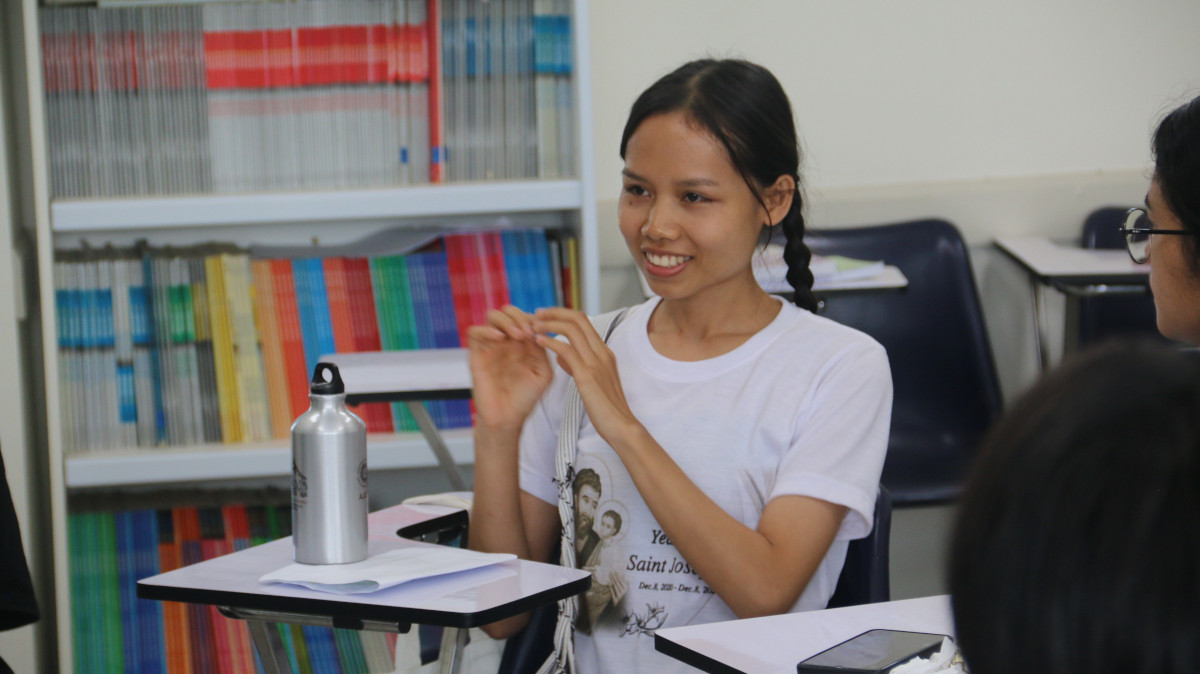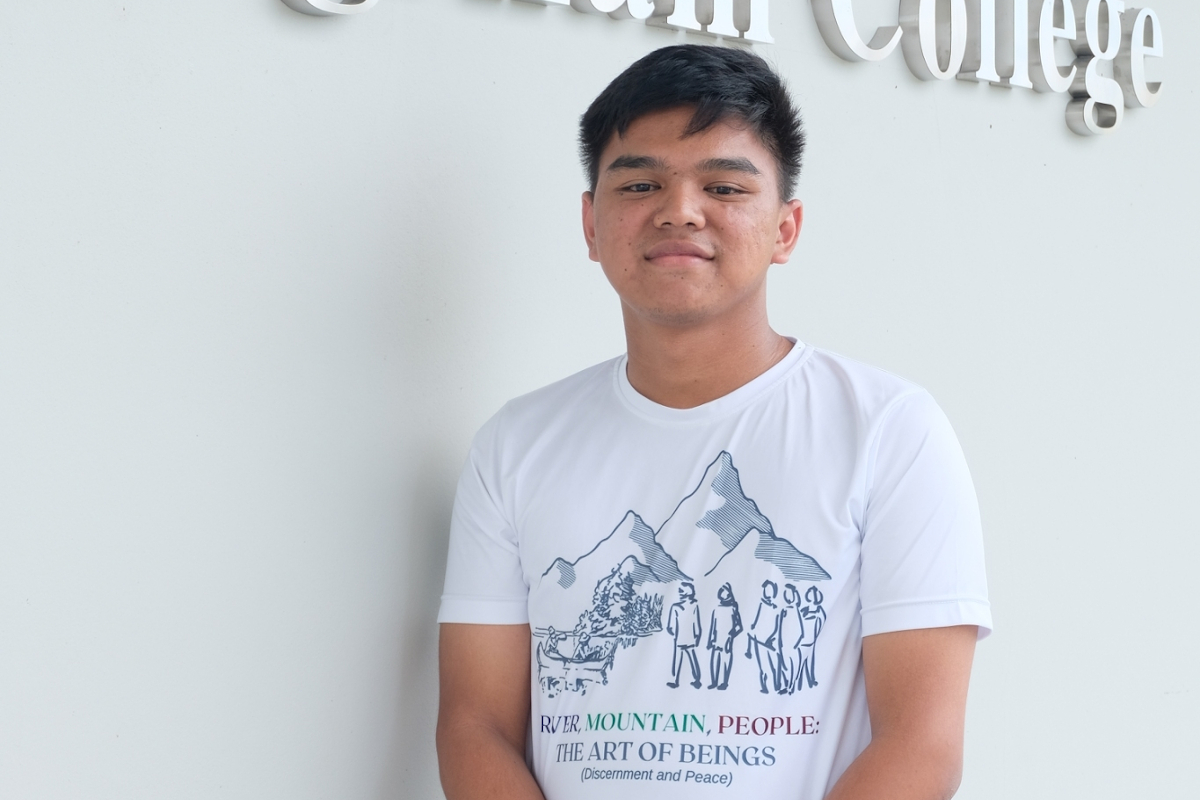 Service Learning Program (SLP) is one of several programmes under the Association of Jesuit Colleges and Universities in Asia Pacific. It is attended by students of Jesuit universities around our Jesuit conference. This year, SLP was hosted by Xavier Learning Community in Chiang Rai from 7 to 26 August. The theme, “River, Mountain, People: The Art of Beings”, aligned with the call of General Congregation 36 for reconciliation. For three weeks, the students were exposed to the geopolitics of Southeast Asia, had the opportunity to immerse themselves in nature and village life, and learned firsthand the stories of marginalised communities, including migrants and refugees.
Service Learning Program (SLP) is one of several programmes under the Association of Jesuit Colleges and Universities in Asia Pacific. It is attended by students of Jesuit universities around our Jesuit conference. This year, SLP was hosted by Xavier Learning Community in Chiang Rai from 7 to 26 August. The theme, “River, Mountain, People: The Art of Beings”, aligned with the call of General Congregation 36 for reconciliation. For three weeks, the students were exposed to the geopolitics of Southeast Asia, had the opportunity to immerse themselves in nature and village life, and learned firsthand the stories of marginalised communities, including migrants and refugees.
Here are some of their reflections:
Marie Angelie M Molina, 4th year student, AB Development Studies, Ateneo de Manila University, Philippines
 What surprised me was how much I learned about myself and life in general. I witnessed and took part in the richness and uniqueness of the different cultures introduced to me through dance, language, song, and story, and shared my own culture in turn. I was made even more aware of my own privilege, which reminded me to be grateful for even the simplest of things. More importantly, the programme strengthened my desire to serve others, nature, and its creatures.
What surprised me was how much I learned about myself and life in general. I witnessed and took part in the richness and uniqueness of the different cultures introduced to me through dance, language, song, and story, and shared my own culture in turn. I was made even more aware of my own privilege, which reminded me to be grateful for even the simplest of things. More importantly, the programme strengthened my desire to serve others, nature, and its creatures.
We encountered multiple interconnected issues, in particular, the (1) Great Mekong River that borders six countries and the devastation resulting from the continued dam-building by the Chinese government; (2) ethnic groups living in the mountainous area of Chiang Rai province and the harrowing problems they face with discrimination, education, statelessness of their elderly, and the push of the Thai government for nationalism at the cost of cultural diversity; (3) Burmese refugees and migrant workers searching for a better life to support themselves and their families away from Myanmar, where the civil war continues to rage through the country.
If this programme has taught me anything, it is co-responsibility. We have to be aware of the voices around us—be they a single voice, a community, a whole country, or even nature itself, and learn with others, knowing that we are never alone in wanting to make a difference. If we want to bring about real change for the betterment of our common home, solidarity and togetherness is the key.
Nanmanas Watcharaphaiphan, third-year Liberal Arts student at Xavier Learning Community, Thailand
 People of many different races have their own cultures, languages, and ideas, and need social acceptance. It is disheartening that in Thailand, individuals with different cultures or languages face challenges in obtaining citizenship. I personally experience this inequality, as despite being Thai, I am not fully recognised as a citizen. If I ever meet someone who has few opportunities than me, I will always give them a chance.
People of many different races have their own cultures, languages, and ideas, and need social acceptance. It is disheartening that in Thailand, individuals with different cultures or languages face challenges in obtaining citizenship. I personally experience this inequality, as despite being Thai, I am not fully recognised as a citizen. If I ever meet someone who has few opportunities than me, I will always give them a chance.
Having grown up in the mountains, I have a strong connection with them. Mountains are not just habitats or livelihoods; they are like vital organs that the body cannot live without. Rivers, too, enable humans to survive. Changes in the river affect ecosystems and humans directly. I look back on my routine and wonder whether I have broken the river. I may have been unconsciously part of its destruction. I resolve to change my water consumption habits, to use water efficiently, and to seriously think about sustainability.
Erudite Wening Svetaketu, BS English Education, Sanata Dharma University, Indonesia
 Learning about the alarming decline in the Mekong’s “mightiness” was eye-opening. The dams constructed along the river not only wreak havoc on its ecological balance but also profoundly affect the lives of those who depend on it for sustenance and livelihood. Our trip to the Golden Triangle underscored the crucial role of the Mekong River in facilitating trade between Thailand and Laos.
Learning about the alarming decline in the Mekong’s “mightiness” was eye-opening. The dams constructed along the river not only wreak havoc on its ecological balance but also profoundly affect the lives of those who depend on it for sustenance and livelihood. Our trip to the Golden Triangle underscored the crucial role of the Mekong River in facilitating trade between Thailand and Laos.
We also visited the Akha village, home to a marginalised ethnic group in the mountainous regions of Chiang Rai. Unfortunately, they are not considered Thai citizens and face societal misconceptions. However, organisations like the Hill Area and Community Development Foundation are working to bring attention to their issues. Similar hardships are faced by the Karen, another ethnic group we met in Chiang Mai. We also visited a migrant foundation that assists migrants from Myanmar.
The SLP experience has truly shaped my understanding of humanity and given me a different perspective on problem-solving. There is often pain behind the famous Thai hospitality. However, I’ve also seen hope in the Thai people I’ve met; they embody resilience and optimism.

